“This country has 100 billionaires, and yet more than a third of Russians can’t afford to buy two pairs of shoes a year” – Physician at rural Russian hospital
Vladimir Putin proudly touts his free national public healthcare system as another benefit of being a citizen of the Russian Federation. Legally, all citizens of the Russian Federation (hereinafter, Russia) are entitled to free lifetime healthcare from any public hospital or clinic, including dental clinics. In reality, public healthcare in Russia is not free. Not only is it not actually free, but because of mismanagement by the Kremlin and years of budget cuts, the “free” public healthcare sector in Russia is in real danger of collapsing under the weight of the current Covid-19 pandemic.
An excerpt from a recent report by a Russian non-profit healthcare agency details this issue:
The problem at the heart of Russian healthcare is its claim to be free for all. In reality, it is not. Thus, for patients, free medical services mean long waiting lines, cursory examinations, and a limited selection of medicines and services depending on the budget of the clinic in question. By making a clinic’s well-being directly dependent on patient capacity and the ability to take in patients on a paid basis, the Russian government negates the very foundation of free medical care. The Russian government should realize that a country that claims responsibility for its citizens’ well-being cannot afford to increase expenditures on national defense at the expense of healthcare. The Russian government should acknowledge that the country’s healthcare system is de facto not free.

Thus, Putin’s false bravado for a Russian public healthcare system offering free lifetime healthcare for all, is in realty, a Potemkin Village masking an inefficient, dangerously underfunded, and understaffed system effectively broken by his own counterproductive policies and in very real danger of collapse. Those policies, as highlighted in the report, include diverting large portions of the national budget from healthcare to defense (5.6%). Since foreign military adventures are one of the primary ways Putin uses to divert attention from his domestic woes and rouse a patriotic fervor among the masses, cuts in the defense budget will not happen anytime soon. And just as important, the Russian people have historically been more than willing to sacrifice quality healthcare and living in abject poverty in order to support a strong military and show an iron fist to the enemy, in this case, America and NATO. Putin is well aware of this and uses that sentiment at every opportunity.
In an effort to make up a portion of that lost revenue, public healthcare facilities try and solicit paying customers from the upper classes to pay for upgraded medical services not available to the masses. A nurse at a top state ophthalmology institute stated, “The free procedures are ones patients don’t need. Anything that concerns life-threatening conditions costs a fee.”
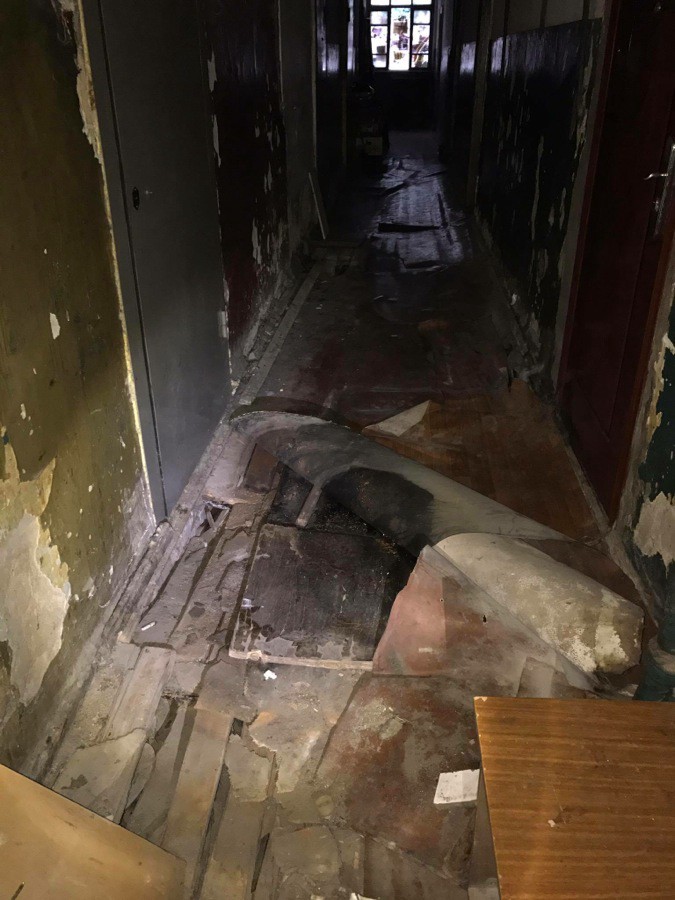
What kind of upgrades might a well heeled Russian citizen expect to receive for paying a few extra rubles? For example, if one were to pay cash for a root canal procedure at a private or a public fee for services dental clinic, that cash paying patient could expect to receive slightly more polite service from the dentist and hygienist than the typically rude behavior afforded to non-paying patients, as well as having a local anesthetic administered prior to the complicated and extremely painful procedure. But isn’t everyone administered an anesthetic before such painful dental procedures anyway? Actually, no. In Russian public dental clinics, no one receives anesthesia regardless of how long, complicated, or painful the dental procedure. Perhaps it is thought that the “mysterious Russian soul” combined with their collective experience living a difficult, hardscrabble life with no expectations of comfort or fair play more than prepares patients for a whatever discomfort a mere root canal can dish out. Maybe it is just more cost effective. Regardless of the reason, Russian dental care in public clinics is the stuff of nightmares for most patients.
Even before this current pandemic, the Russian public healthcare system was itself on life support. A government watchdog agency issued this chilling statement last year: “Nearly one-third of Russia’s medical facilities lack a water supply network and more than 40% lack central heating, the Russian government’s public spending watchdog has said in its latest report on children’s health.” The report went on to say, “Out of the almost 117,000 buildings inspected as of January 2019, Russia’s Audit Chamber said 41.1% had no central heating and 30.5% had no water. Sewer systems were absent in 35% of Russian hospitals.” These are not the kind of conditions one would expect to find in public healthcare facilities located inside a developed nation in the second decade of the 21st century.
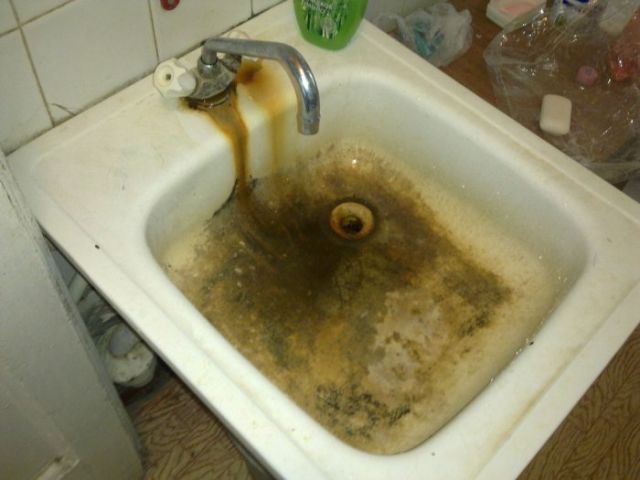
Despite the glowing proclamations from President Putin, neither patients nor public healthcare workers received anything even approaching fair treatment. Doctors in particular are extremely frustrated at the salaries and working conditions they are forced to contend with. Now, with the coronavirus pandemic straining the already overstretched system to its limits, Moscow hospitals have enlisted medical students, including eighteen year-old first year students, to assist veteran doctors in caring for the increasing onslaught of new patients.
Recently, healthcare professionals have begun to organize and threaten to strike unless increased wages, reduced hours, better working conditions and other demands are met. This is an unprecedented situation for Russia where unions are frowned upon and making demands of the government is at best, a dangerous proposition. The Kremlin propaganda machine is so good that most of the population thinks the doctors and nurses at Russian clinics already make too much money and should be happy with their salaries and just do their jobs in silence. Despite not having the support of many ordinary Russians, the organizing continues amid the worsening healthcare conditions caused by the Covid-19 pandemic.
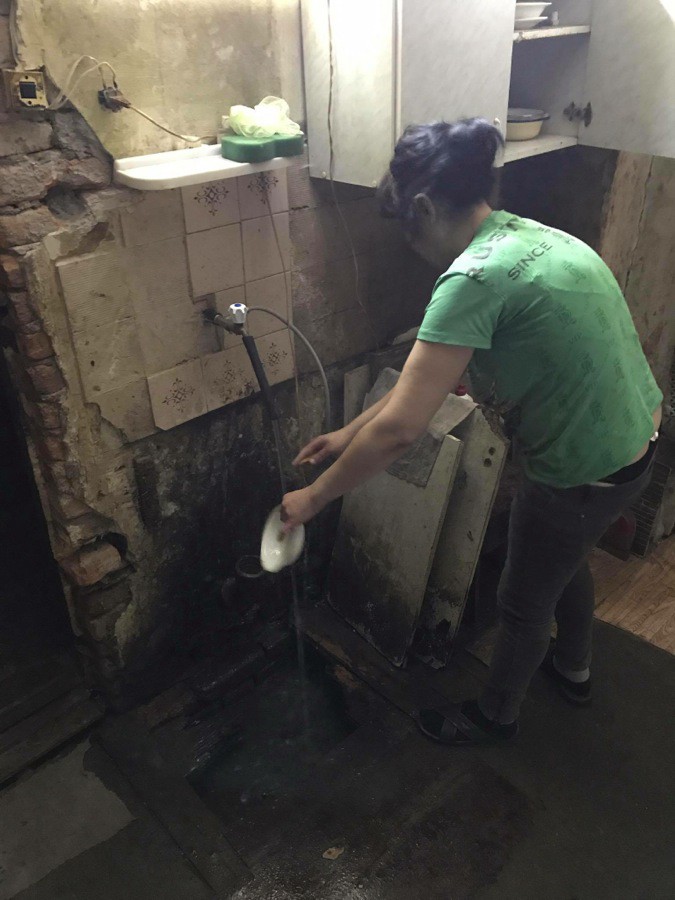
Is the situation really that bad inside the Russian public healthcare infrastructure? Are these doctors and nurses just spoiled elites demanding more from the public trough than they deserve? Is the Russian public healthcare system as strong and resilient as Putin would have us believe? The reality may actually be far worse than most can imagine.
In terms of total expenditures on healthcare, the Organization for Economic Cooperation and Development (OECD) ranked the Russian public healthcare system fourth lowest of any member state, as well as having the fourth worst per capital spending on healthcare, somewhere between Niger and Sudan. As for overall efficiency, the 2016 Bloomberg Healthcare Efficiency Index, Russia ranked 55th out of 55 countries surveyed, or dead last. A relevant section of the Bloomberg Report states, “The bottom place in the efficiency ranking comes as no surprise: the Russian government continues to prop up many inefficient assets, including numerous polyclinics and hospitals, inherited as part of the Soviet legacy. Current norms for state medical institutions offer no scope for increasing their efficiency.” In other words, the Kremlin pours the lion’s share of the Russian GDP into defense spending in lieu of paying decent wages and benefits to healthcare professionals, or upgrading, modernizing, and/or replacing Soviet era medical facilities. It is quite clear where Mr. Putin’s priorities lie, and that reality is becoming clearer to ordinary Russians every day.
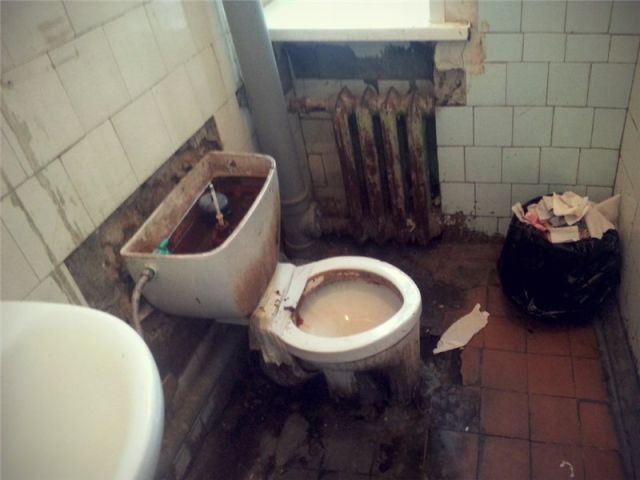
President Putin has, for the most part, remained silent and has been essentially missing in action during the majority of the coronavirus pandemic thus far, preferring to remain in self-quarantine at his lavish dacha north of Moscow. This is a longstanding operating procedure for Putin whenever he wants to stay temporarily detached from a politically sensitive situation in order to evaluate his options from a safe distance and if need be, avoid direct responsibility should things take a turn for the worse. In the west we call this “plausible deniability.” For now, he has left the heavy lifting to Moscow Mayor Sergei Semyonovich Sobyanin. Since the time Russia finally acknowledged the serious nature of the pandemic in Mid-February (weeks before America), Sobyanin has taken the lead as both spokesman and coordinator for the Russian response and as such, he has been remarkably transparent and forthcoming.
Despite a well-publicized airlift of surgical masks by Russia to America recently, Moscow is desperately running short of medical supplies, hospital beds and doctors. As stated earlier, the situation in Moscow is so dire that eighteen year-old medical students are being enlisted to work double shifts in area hospitals to relieve exhausted staff doctors. According to Andrei Klepach, chief economist with the state development corporation VRB, recent cost cutting decisions by Putin has put the public healthcare system in a particularly vulnerable situation to deal with the Covid-19 pandemic. “Our healthcare system, possibly as a result of many optimization measures — reductions in the number of beds and doctors, including infectious diseases specialists, which have been taking place since 2012 — is very vulnerable to such a sharp increase in workload,” Klepach said.
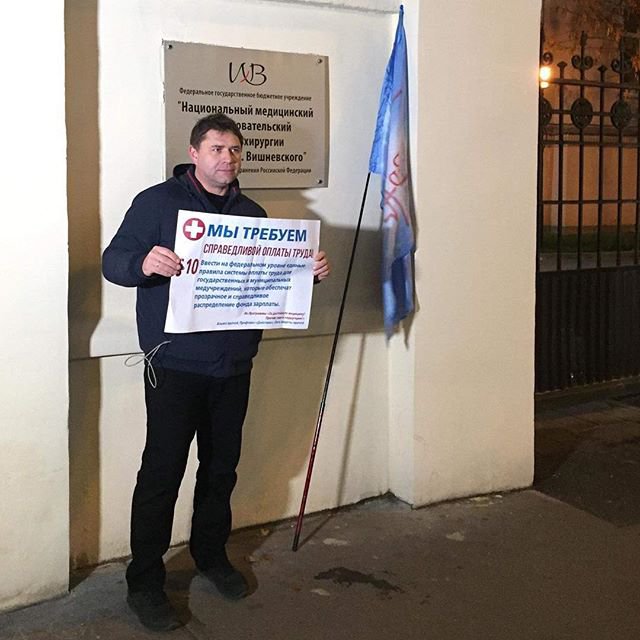
According to Bloomberg News, “Russia spends about a third of the level of western European nations on healthcare, and expenditure has been falling in inflation-adjusted terms over the last six years.” Another puzzling fact that seems to be uniquely Russian, is that many medical centers located throughout Russia do, in fact, have the latest medical and surgical devices available for doctors working at those hospitals. The problem is, almost none of the doctors, nurses or technicians working at those medical centers have been trained to operate that state of the art medical equipment. I have had this astounding fact confirmed by numerous sources that live and work in Russia. Very expensive MRI’s, EKG’s, and other sophisticated medical imaging devices sit idle in hospital wards gathering dust for lack of qualified operators. Since all decisions of any importance must come down from the central health ministryoffice in Moscow, the order to schedule training for operation of these devices inevitably gets lost in the labyrinthian maze of Russian bureaucracy and the staggering levels of corruption.
And so it goes with the current situation regarding the response to the Covid-19 pandemic. Surgical masks desperately needed by Russian doctors in Moscow, Smolensk and Nizhniy-Novgorod go to Washington, DC for a publicity stunt. Disinfectant, sanitizers and possibly even the promised ventilators, are sent to Northern Italy, along with chemical warfare troops, some virologists and a unit or two of Russian GRU and SVR agents, no doubt to keep the doctors company and perhaps even to make small talk in cafes with the local citizenry about the latest Milan fashion designs for the upcoming fall season. Whatever they were doing, it was not to support the increasingly desperate situation facing Russian hospitals and medical staff as they fight to treat the alarming spike in coronavirus patients in Moscow and the provinces.
How much longer can Russia’s decrepit, vastly underfunded, woefully understaffed, and chronically overworked public healthcare system stretch itself during this pandemic before finally breaking? Primary care physicians are on average 60 years old. Many practicing doctors were educated in Soviet times, and they generally lag behind their Western counterparts in terms of qualifications. Eighteen year-old first year medical students are now regularly taking shifts in Moscow area hospitals. Ambulances routinely report waiting more than twelve hours with coronavirus patients at the entrance to Moscow hospital emergency rooms because of staffing and equipment shortages. Covid-19 testing kits are in short supply nationwide and many health officials claim the kits they have are inaccurate and unreliable, leading them to believe the actual number of infected is many times higher than the official Kremlin figures released to the media.
These Russian health officials, along with Moscow Mayor Sobyanin, are fearful that when the pandemic finally plateaus in the next several weeks or months and the true number of those infected is known, their long neglected public healthcare system will not be able to handle the massive onslaught of dead and dying Russians. They are fearful it will simply collapse. And that is a Chernobyl that even Vladimir Vladimirovich Putin will not be able to hide.
Author
-
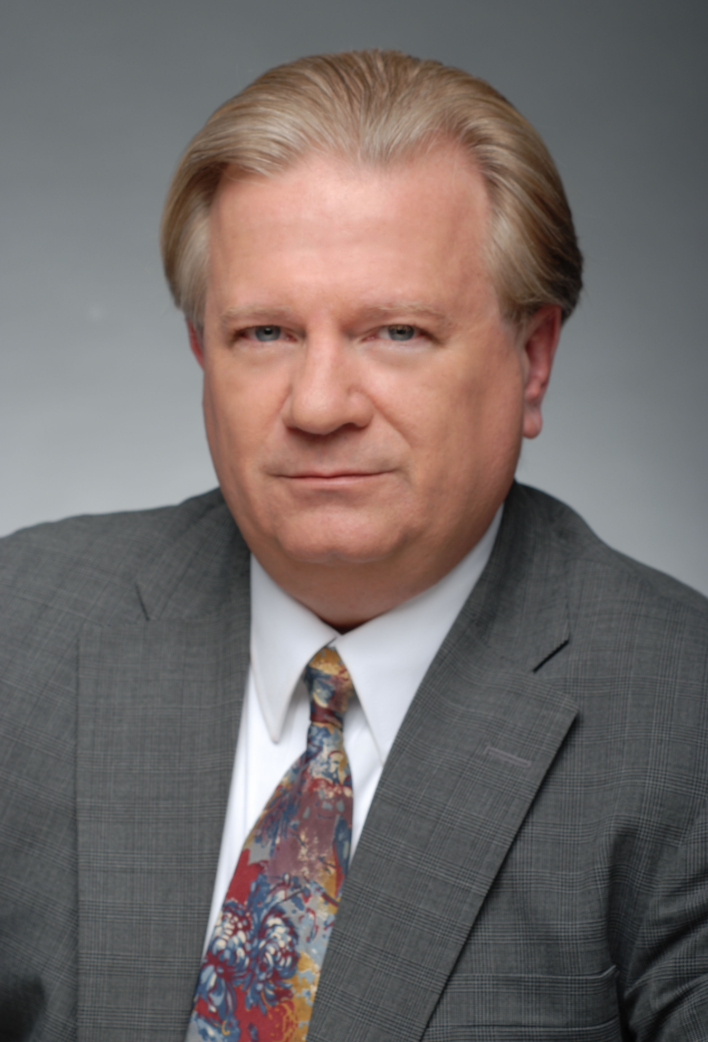
Retired U.S. Army Counterintelligence Special Agent. He served in Iraq as a team leader of a tactical Human Intelligence Team (THT). Prior to his deployment to Iraq, David was an instructor at the reserve U.S. Army Counterintelligence Special Agent course. He has published four novels for Grand Central Publishing and is currently finishing a memoir of his experience in Iraq. David has also written articles for Vanity Fair, Salon.com, The American Prospect and The Washington Monthly.
View all posts




